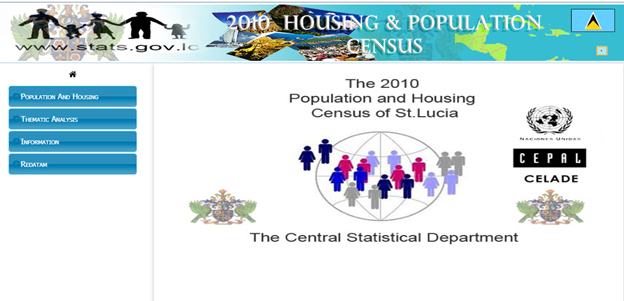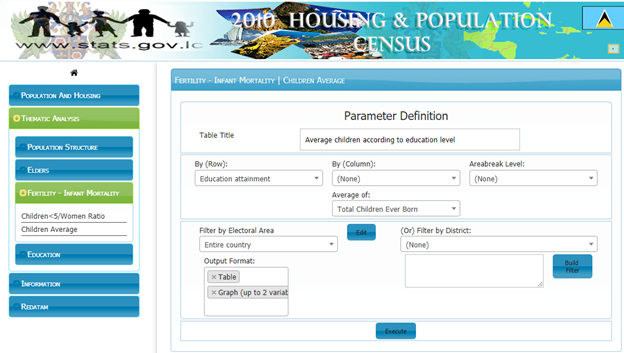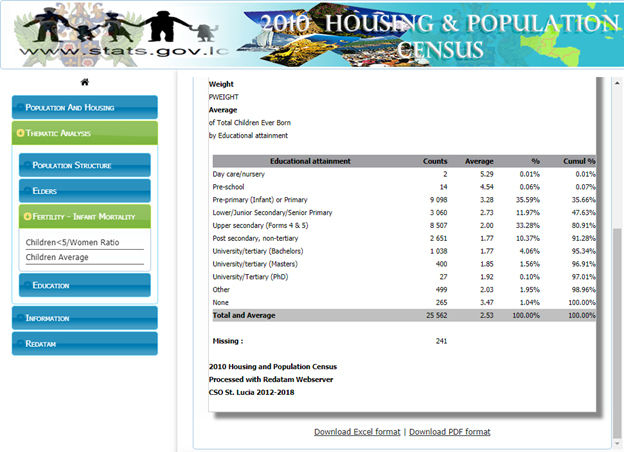Caribbean statistical offices will be carrying out the next round of population and housing censuses between 2020 and 2022. Population censuses provide perhaps the most fundamental of all government statistics. Census data are used to inform research, policymaking, planning and service delivery as well as being necessary for the calculation of many other official statistics.
Population censuses, which collect data from every household in the country, are the largest statistical exercise carried out by governments. Previous census rounds have presented real organisational and technical challenges for the small statistical offices of the Caribbean. From the point of view of data users, the most visible impact of these capacity constraints has been on the timeliness and/or range of census products that have been made available following a census.
Statistical offices should produce a range of census outputs designed to meet the needs of different types of user. This would typically include standard census reports, thematic reports and atlases; online tabulation and mapping tools; and anonymized microdata for approved researchers. There are certainly examples of such good practice among Caribbean statistical offices. For example, following the last Bahamas census, in addition to a census report, the Statistics Department produced supplementary thematic reports on international migration, internal migration, persons with disability and population projections.
A number of statistical offices now make their census microdata available to researchers: through an on-site data laboratory in the case of Belize and Suriname; through an online archive in the case of Trinidad and Tobago; and through the Derek Gordon Databank (UWI) in the case of Jamaica. Nevertheless, there is plenty of scope for improving the range of census outputs that are available.
ECLAC has been working to support Caribbean statistical offices in providing online access to their census datasets. Since the 2010 round, ECLAC has supported eight Caribbean countries and territories in the development of web applications which provide access to their most recent census data: Antigua and Barbuda, Aruba, Belize, Cayman Islands, Jamaica, Saint Lucia, Saint Vincent and the Grenadines and Trinidad and Tobago as shown in figure 1. ECLAC continues to work with a number of other countries to make more datasets available online.
Figure1. List of countries with on-line census processing applications

Source: www.redatam.org
These applications are built using REDATAM, a software tool developed and supported by ECLAC for the processing, tabulation and dissemination of census and survey data. The REDATAM software makes it possible for statistical offices to provide controlled online access to their census and survey micro-datasets.
Figure2. Saint Lucia 2010 online application

Source: www.redatam.org
Users can define exactly the data that they require through an interface which then passes that data request to a secure server where the microdata are held.
Figure 3. Saint Lucia 2010 online application parameters window

Source. www.redatam.org
Tabulations or other analyses such as the calculation of indicators or maps are then processed, with the results returned to the user in real time. This gives users much greater flexibility and genuinely interactive access to the data, for example the ability to disaggregate data by sex, age, ethnicity, employment status, health status, disability status or any other variable of interest.
Figure 4. Saint Lucia 2010 online application output window

Source: www.redatam.org
Figure 5. Saint Lucia 2010 online application graph window

Source: www.redatam.org
Historically, ECLAC has cooperated with Caribbean statistical offices in carrying out its population and housing censuses. In particular, systematic support has been provided in the preparation, field operations, analysis and dissemination. ECLAC is currently collaborating in the preparation of the 2020 round of population censuses, focused on the definition of the thematic contents and the strategy for dialogue with users and technological innovations in the cartographic update, data capture and dissemination of results.
ECLAC is committed to working, together with UNFPA and other development partners, to support Caribbean statistical offices in carrying out population and housing censuses and, in particular, to ensuring a more timely and comprehensive publication of census results.